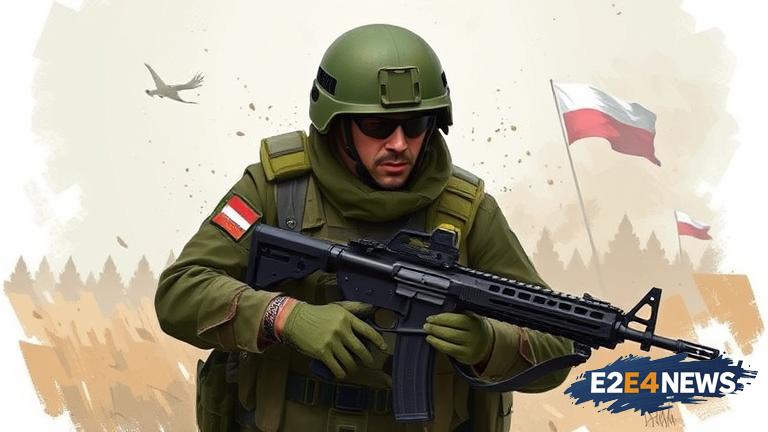A recent incident at the Belarus-Poland border has left a Polish soldier injured, highlighting the growing tensions in the region. The soldier was hurt when a flashbang grenade was thrown during a confrontation with migrants attempting to cross the border. The incident has sparked concerns over the safety of border patrol personnel and the potential for further escalation. The Belarus-Poland border has been a focal point of migrant crossings in recent years, with many attempting to make their way into the European Union. The Polish government has taken a firm stance on border control, deploying troops and implementing strict security measures to deter migrants. However, human rights groups have criticized the government’s approach, citing concerns over the treatment of migrants and the potential for human rights abuses. The use of flashbang grenades in the recent incident has raised questions over the use of force by border patrol personnel. The Polish government has defended its actions, stating that the use of force was necessary to maintain order and protect national security. The incident has also sparked a diplomatic row between Poland and Belarus, with each side accusing the other of exacerbating the situation. The European Union has called for calm and restraint, urging both sides to work towards a peaceful resolution. The migrant crisis at the Belarus-Poland border is a complex issue, with roots in conflict, poverty, and persecution in the migrants’ countries of origin. Many migrants are fleeing war-torn countries such as Syria and Afghanistan, while others are seeking to escape poverty and persecution in countries such as Iraq and Iran. The journey to the Belarus-Poland border is often long and arduous, with migrants facing numerous challenges and dangers along the way. Despite these challenges, many migrants remain determined to reach the European Union, where they hope to find safety, security, and a better life. The Polish government’s response to the migrant crisis has been criticized by some, who argue that the country is not doing enough to provide humanitarian assistance and support to those in need. However, others argue that the government’s firm stance on border control is necessary to maintain national security and prevent the spread of illegal immigration. The incident at the Belarus-Poland border is a reminder of the need for a comprehensive and coordinated approach to addressing the migrant crisis. This includes providing humanitarian assistance and support to those in need, as well as working to address the root causes of migration. The international community must also work together to find a peaceful and sustainable solution to the crisis, one that balances the need to protect national security with the need to uphold human rights and provide protection to those fleeing persecution and conflict. The use of force by border patrol personnel must be carefully considered and proportionate to the threat posed, and all incidents must be thoroughly investigated to ensure that human rights are respected and protected. The situation at the Belarus-Poland border is complex and multifaceted, requiring a nuanced and comprehensive approach to address the many challenges and concerns at play. As the situation continues to unfold, it is essential that all parties involved work towards a peaceful and sustainable solution, one that prioritizes the safety and dignity of all individuals involved.





